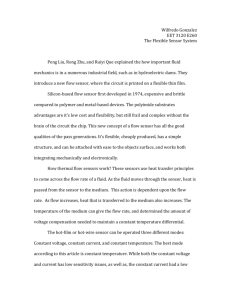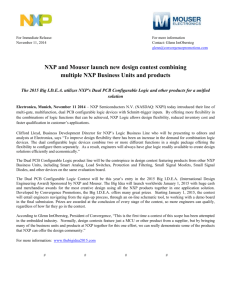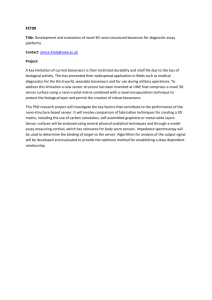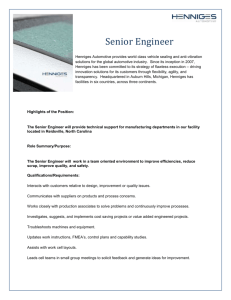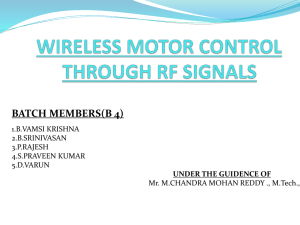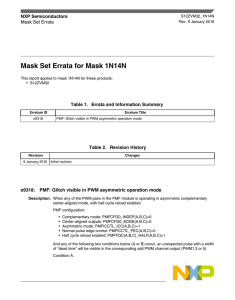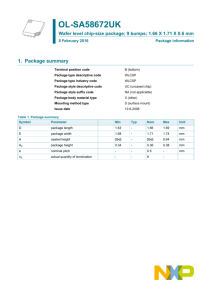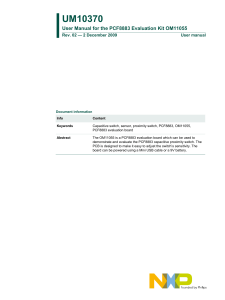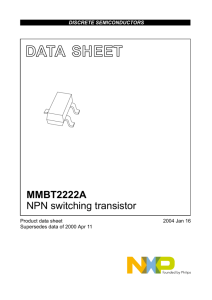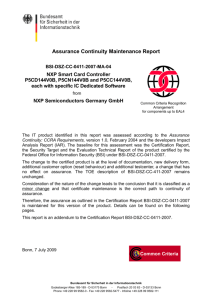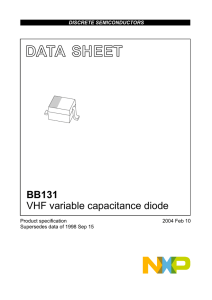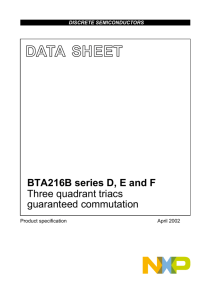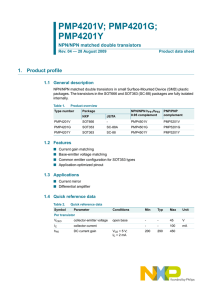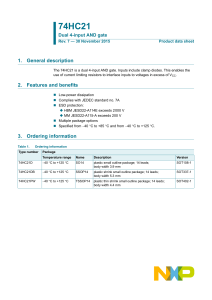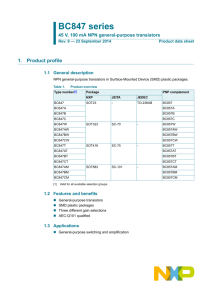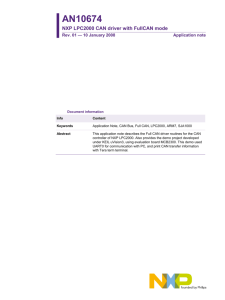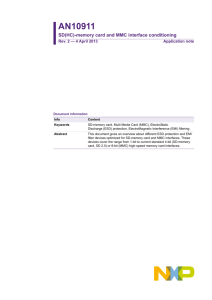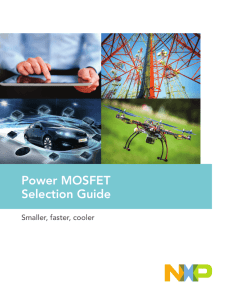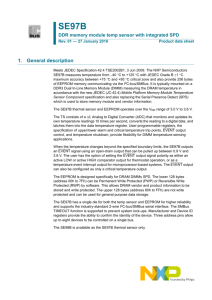NXP introduces AMR sensor for BLDC motor control
advertisement
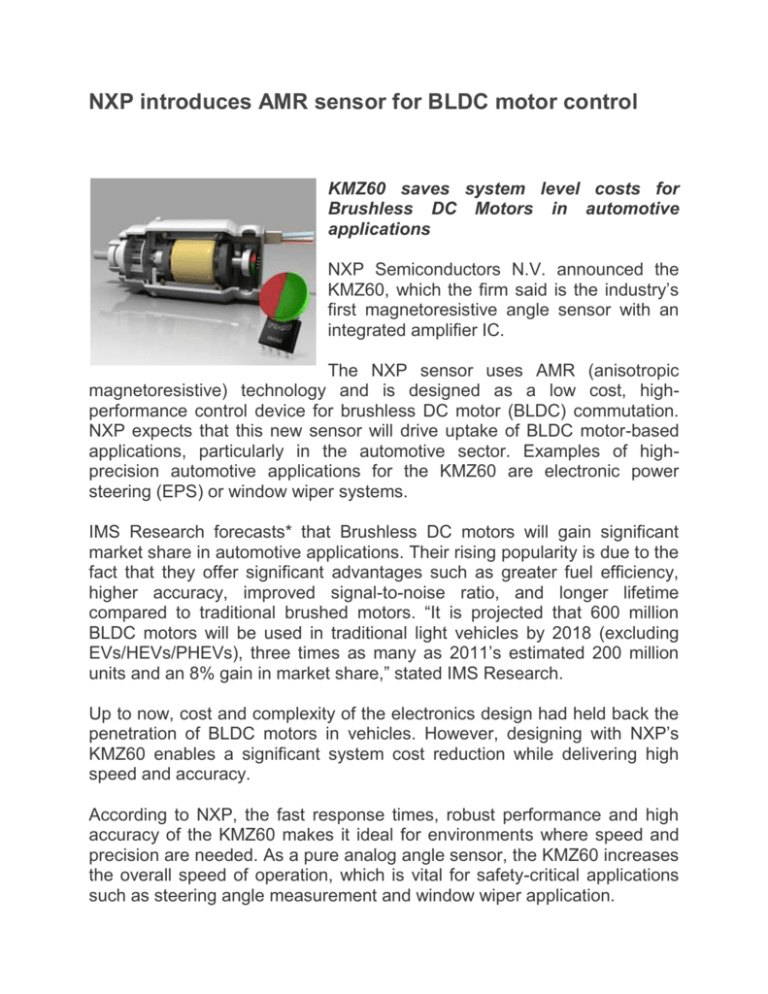
NXP introduces AMR sensor for BLDC motor control KMZ60 saves system level costs for Brushless DC Motors in automotive applications NXP Semiconductors N.V. announced the KMZ60, which the firm said is the industry’s first magnetoresistive angle sensor with an integrated amplifier IC. The NXP sensor uses AMR (anisotropic magnetoresistive) technology and is designed as a low cost, highperformance control device for brushless DC motor (BLDC) commutation. NXP expects that this new sensor will drive uptake of BLDC motor-based applications, particularly in the automotive sector. Examples of highprecision automotive applications for the KMZ60 are electronic power steering (EPS) or window wiper systems. IMS Research forecasts* that Brushless DC motors will gain significant market share in automotive applications. Their rising popularity is due to the fact that they offer significant advantages such as greater fuel efficiency, higher accuracy, improved signal-to-noise ratio, and longer lifetime compared to traditional brushed motors. “It is projected that 600 million BLDC motors will be used in traditional light vehicles by 2018 (excluding EVs/HEVs/PHEVs), three times as many as 2011’s estimated 200 million units and an 8% gain in market share,” stated IMS Research. Up to now, cost and complexity of the electronics design had held back the penetration of BLDC motors in vehicles. However, designing with NXP’s KMZ60 enables a significant system cost reduction while delivering high speed and accuracy. According to NXP, the fast response times, robust performance and high accuracy of the KMZ60 makes it ideal for environments where speed and precision are needed. As a pure analog angle sensor, the KMZ60 increases the overall speed of operation, which is vital for safety-critical applications such as steering angle measurement and window wiper application. “Modern vehicles have between 10 and 100 electric motors. By replacing traditional motors with brushless DC motors, car manufacturers can realize significant energy savings,” said Drue Freeman, vice president global automotive sales and marketing, NXP Semiconductors. “The KMZ60 sensor is designed to save system costs and further boost the uptake of energyefficient equipment. By using a true angular measurement, our magnetoresistive sensors operate reliably independent of magnet shifts and drifts due to lifetime, thermal influences or mechanical stress. This enables high-accuracy readouts even in the most demanding environments, such as the inside of a motor.” The KMZ60 sensor consists of two microchips within a single SO8 package, an angle sensor and an amplifier integrated circuit (IC) designed to deliver cosine and sine output signals related to the angle of the rotating magnetic field within a motor. The integrated amplifier means no external amplifiers are required, leading to overall cost savings. A power-down mode permits low power consumption when the sensor is not in use. Key Features High precision sensor for magnetic angle measurement Temperature coefficient compensated ratiometric output signals from -40 ℃ to 150 ℃ Output voltage range is ratiometric related to the supply voltage Automotive qualified Availability The KMZ60 is available now. Links Automotive Efficiency Campaign: www.nxp.com/driving-efficiency KMZ60: http://www.nxp.com/products/sensors/angular_sensors/KMZ60. *Source IMS Research “The World Market for Electrical Motors in Automotive Applications – 2011 Edition”


